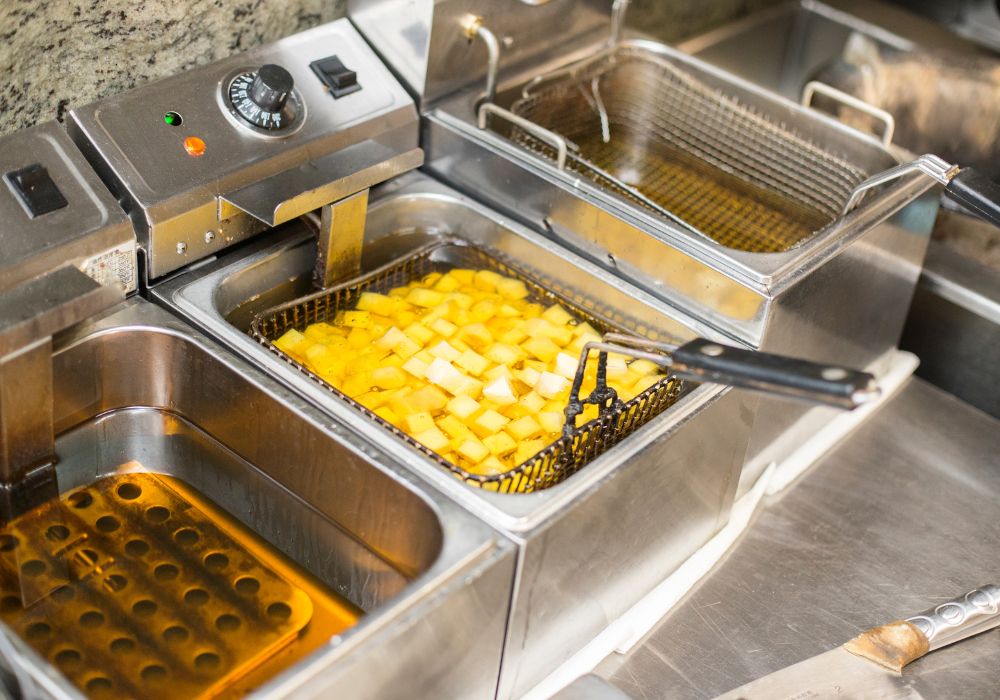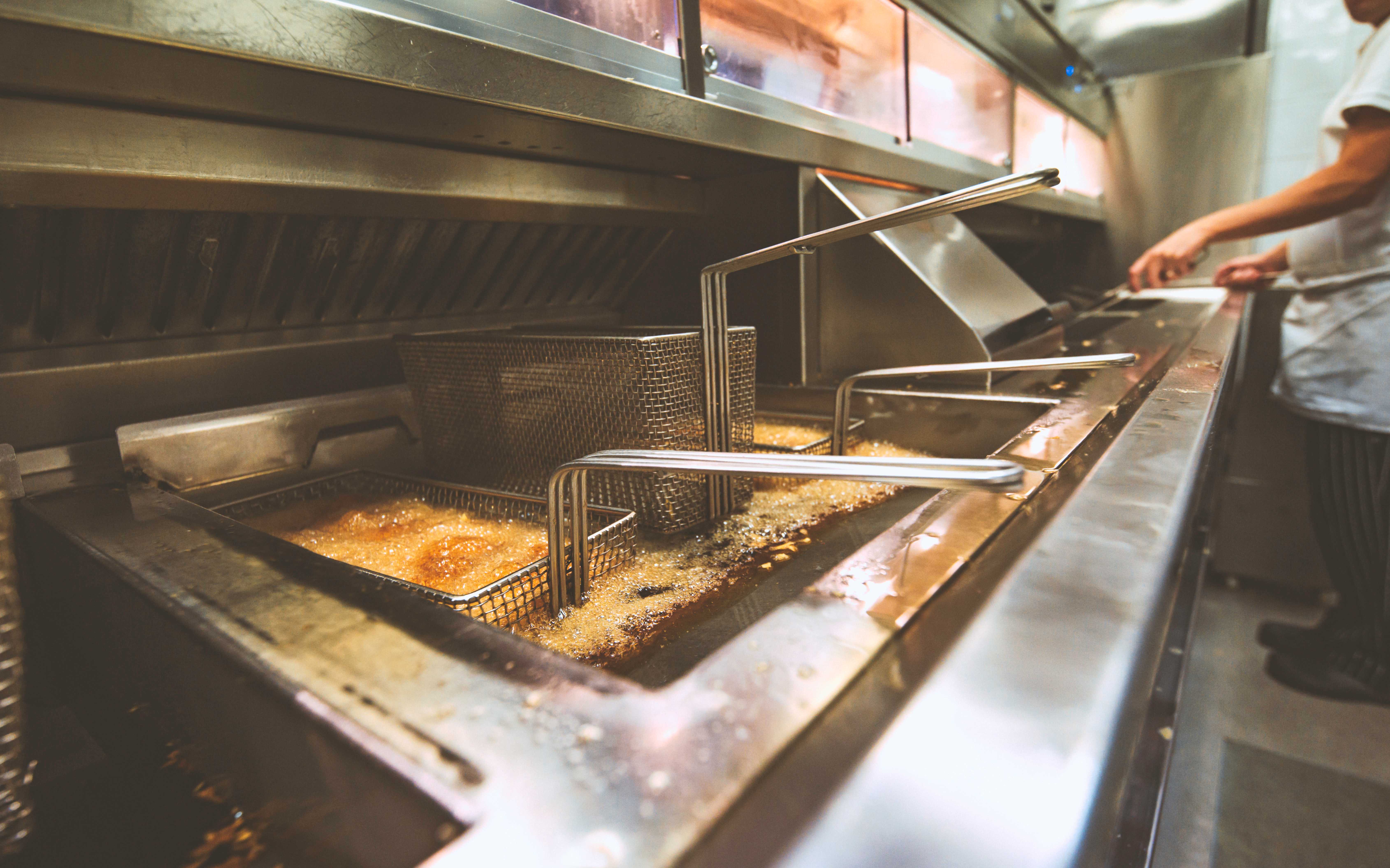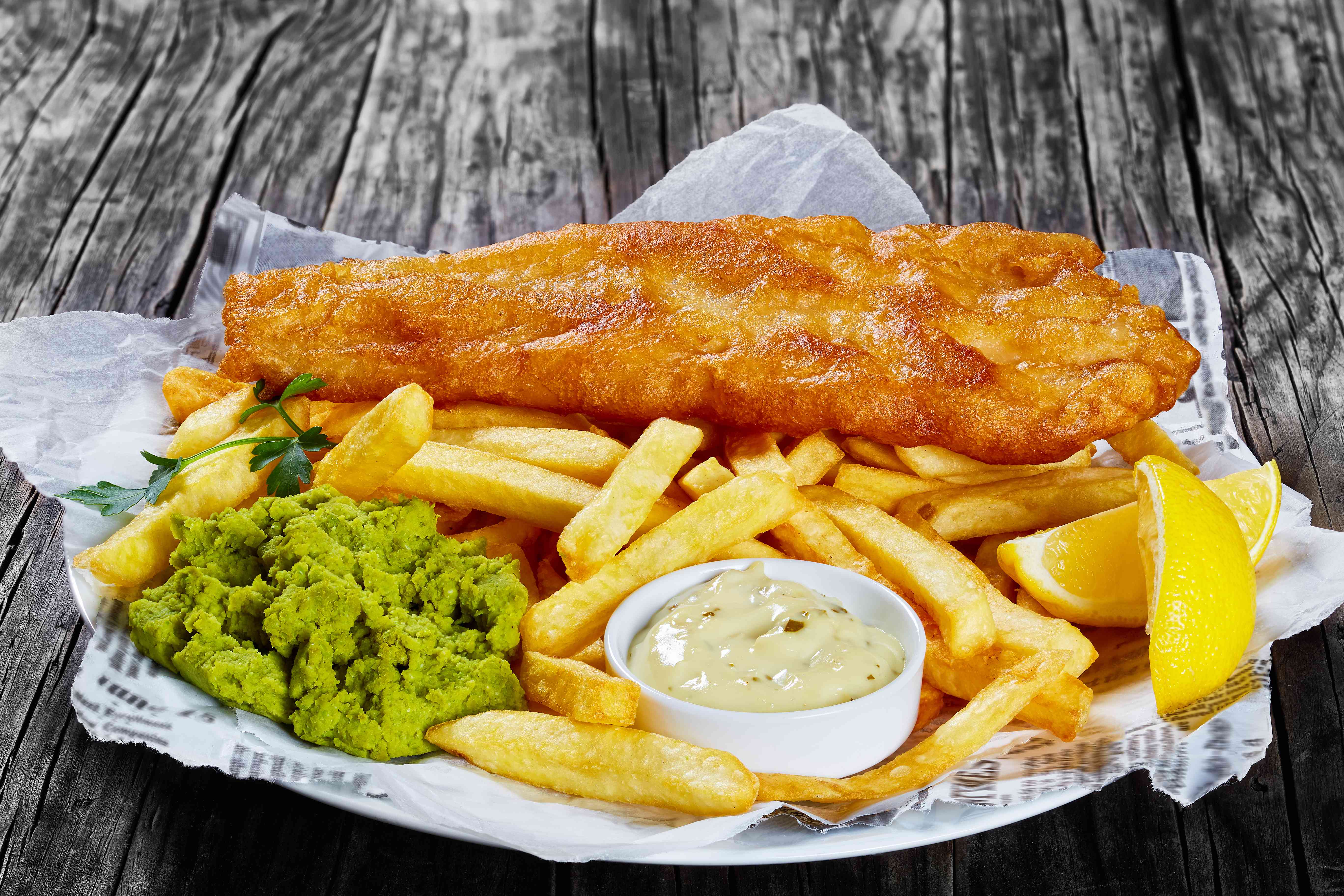In the world of culinary arts, you’ll encounter a multitude of cooking oils, each with its unique characteristics and flavours. Among these oils, one vital but frequently misunderstood aspect is the smoking point. The smoking point of an oil plays a crucial role in determining its suitability for various cooking methods, particularly high-temperature frying and deep frying. While there are several oils available, vegetable oil and in particular palm oil, stands out as an ideal choice for high-temperature cooking. In this article, Frymax looks at smoking points for vegetable oil, why they matter, and explore why palm oil reigns supreme in the world of high-temperature cooking.
What is a Smoking Point?
The smoking point of an oil is the temperature at which it begins to break down and emit visible smoke. This breakdown is accompanied by the release of volatile compounds and the formation of harmful free radicals, which not only compromise the flavour and nutritional quality of the oil but can also be detrimental to one’s health.
Different oils have different smoking points due to their varying chemical compositions. Some oils can withstand high temperatures without breaking down, while others are more delicate and have lower smoking points. The smoking point is a fundamental factor to consider when choosing an oil for cooking methods that involve high heat, such as frying, searing, and sautéing.
Why Does Smoking Point Matter?
- Flavour and aroma: When an oil reaches its smoking point, it imparts a bitter and unpleasant flavour to the food being cooked. This can significantly affect the taste and aroma of the dish, making it less enjoyable.
- Nutritional quality: The breakdown of oil at high temperatures can lead to the degradation of its nutritional components. Essential fatty acids, such as omega-3s and omega-6s, are particularly susceptible to heat-induced damage. This can result in the loss of health benefits associated with these fatty acids.
- Health concerns: As oils break down at their smoking points, they release harmful compounds like acrolein and acrylamide, which have been linked to various health issues, including cancer. Additionally, the formation of free radicals can contribute to oxidative stress in the body.
- Cooking performance: Oils with low smoking points may not perform well in high-heat cooking methods. They can smoke excessively, burn, and create an unpleasant cooking environment.
- Fire risk: Oils with a low smoking point burn at high temperatures, making them a high fire risk in kitchens and restaurants. Using an oil with a low smoking point for deep frying and high temperature cooking puts property and people at risk.
When to Use High Smoke Point Oils
High smoke point oils are essential for cooking methods that require high temperatures. Here are some common scenarios where using oils with a high smoking point is crucial:
- Deep frying: Deep frying involves submerging food in hot oil, typically at temperatures ranging from 175°C to 190°C. Oils with high smoke points are essential to maintain the integrity of the oil and the quality of the fried food.
- Pan searing: Searing meats and seafood at high temperatures in a pan can create a flavourful crust. High smoke point oils are necessary to prevent the oil from breaking down and smoking excessively during this process.
- Stir-frying: Stir-frying involves cooking small pieces of food quickly over high heat. Oils with high smoke points are ideal for achieving the desired sear and flavour without burning the oil.
- Grilling: While not directly using oil, high smoke point oils are often used to coat grill grates or marinate foods before grilling to prevent sticking and add flavour.
What is Vegetable Oil?
“Vegetable oil” is a broad term used to describe edible oils extracted from various plant sources. These oils are commonly used in cooking and food preparation due to their versatility and wide availability. Vegetable oils can be made from a variety of plants, including soybeans, corn, sunflowers, canola, and palm.
What is the Smoking Point of Vegetable Oil?
The smoking point of vegetable oil can vary depending on its source and processing method. Here is a general overview of the smoking points for some common refined vegetable oils:
- Canola oil: Canola oil has a relatively high smoking point of around 204°C, making it suitable for frying and high-heat cooking.
- Soybean oil: Soybean oil also has a high smoking point, typically around 232°C, which makes it suitable for a wide range of cooking applications.
- Corn oil: Corn oil has a moderate smoking point of around 232°C, making it a good choice for frying and sautéing.
- Sunflower oil: Sunflower oil varies depending on the type. High oleic sunflower oil has a high smoking point of around 232°C, while regular sunflower oil has a lower smoking point of around 210°C.
- Palm oil: Palm oil stands out with a high smoking point of around 235°C, making it an excellent choice for high temperature frying and deep frying.
While many vegetable oils have high smoking points and are suitable for various cooking methods, palm oil stands out as an exceptional option for high temperature cooking due to its remarkable stability and other unique characteristics.
Please remember that the smoke point of oils will decrease as the percentage of free fatty acids increase (during frying).
Why Palm Oil is the Best Oil for High Temperature Frying and Deep Frying
Among the various vegetable oils, palm oil stands as a superior choice for high temperature frying and deep frying. Here are some compelling reasons why palm oil is the best oil for cooking at high temperatures:
- High smoking point: As mentioned earlier, palm oil has a high smoking point of around 235°C. This exceptional heat tolerance means that palm oil can maintain its stability and nutritional integrity even in the most demanding frying conditions.
- Stability: Palm oil is highly stable, thanks to its balanced composition of saturated and unsaturated fatty acids. This stability not only prevents the breakdown of the oil but also ensures that the food can be fried in higher temperatures, meaning absorbing less oil, resulting in lighter and less greasy dishes.
- Versatility: Palm oil’s neutral flavour and ability to withstand high heat make it suitable for a wide range of fried foods, from crispy fried chicken to golden French fries. Its versatility in deep frying applications is unrivalled.
- Nutritional benefits: Palm oil contains essential nutrients, including vitamin E and beta-carotene, which can withstand high temperatures without degradation. It also has less than one percent trans fatty acids, making it better for you in terms of heart health. This means that when you fry with palm oil, you’re not only getting a delicious meal but also a healthier one, retaining nutritional value.
- Long shelf life: Palm oil has a long shelf life due to its inherent stability, making it a practical choice for both home cooks and food manufacturers.
- Sustainability: While concerns have been raised about the environmental impact of palm oil production in the past, sustainable practices, and certifications such as RSPO (Roundtable on Sustainable Palm Oil) have been implemented to address these issues. It’s essential to choose sustainable palm oil products with responsible sourcing certifications to support sustainable practices.
In conclusion, understanding the smoking point of cooking oils is essential for achieving culinary success and maintaining good health. When it comes to high temperature frying and deep frying, palm oil shines as the best choice due to its high smoking point, stability, versatility, and nutritional benefits. However, it’s crucial to select responsibly sourced palm oil products to ensure environmental sustainability. By making informed choices about cooking oils, you can elevate your culinary creations and promote a healthier lifestyle.
Frymax – The UK’s Trusted Supplier of All-natural Sustainable Palm Oil
Join the ranks of culinary professionals who have trusted Frymax, the fryer’s favourite cooking oil for over six decades! As suppliers of deep fat fryer oil to establishments across the UK, we take pride in delivering excellence. Frymax is your go-to solution – a high-quality, 100% natural, and sustainable palm oil perfect for deep frying, containing less than one percent trans fatty acids.
Our RSPO certified oils are not only pure but also free of additives, allergens, GM ingredients, and hydrogenated oils, making them suitable for every kitchen. We’ve upheld our exceptional quality for 60 years, earning the loyalty of customers who’ve been with us for over a quarter-century. Experience the Frymax difference at one of their shops and discover why generations of fryers have chosen Frymax.
Contact us for more information or Join us today as a Frymax member, and unlock exclusive content, expert frying advice, and exciting competition opportunities! Your culinary journey deserves the best.






